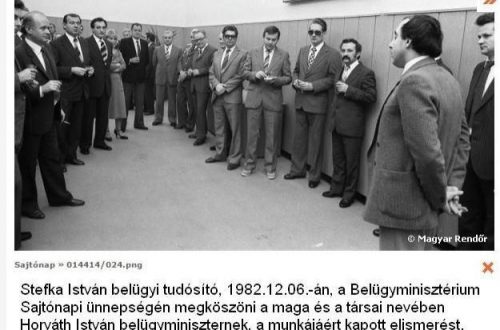Antisemitism rears its ugly head once again. In July, prominent rapper Wiley – dubbed the ‘Godfather of Grime’ – engaged in reprehensible antisemitic tropes on Twitter and Instagram. In response, many in the Jewish community and their allies called out Twitter’s apparent inability to deal with racism when it came to Jews, and took part in a 48-hour boycott of the site. Finally Twitter acted accordingly and Wiley was permanently suspended. It is important to note, however, of another case of antisemitism that was revealed but which bizarrely received far less attention.
Reported in the Times, trustee and director of Islamic Relief Worldwide – one of the biggest Muslim charities in the UK – Heshmat Khalifa is alleged to have made a stream of antisemitic insults on his Facebook page in 2014 and 2015. Khalifa’s antisemitic insults – written in Arabic and aimed at President Sisi of Egypt – included ‘grandchildren of monkeys and pigs’, and the labelling of fellow Muslims as ‘pimp son of the Jews’ and ‘Zionist pig’. The Facebook posts were taken down a day after the charity was informed of the Times’ intention to publish the story.
That some of these posts have been up for nearly half a decade should be of real concern to all of us. Why wasn’t this flagged up, in the same way as Wiley’s antisemitism? And why has it taken this long for Islamic Relief or Muslims in general to call it out for what it is? The reason perhaps, whether we like it or not, is that there are a vocal minority of Muslims who justify antisemitism as a religious right. This is further supported by a new report from the think tank, the Henry Jackson Society, in which it found that Muslims are more likely to harbour antisemitic views than the general population.
For Muslims, the Quran is seen as the word of Allah sent down to the Prophet Muhammed through the Angel Gabriel. It was transcribed by companions of the Prophet and others over a 23-year period. Within the Quran, we find texts very useful to antisemites, such as:
‘We decreed upon the Children of Israel that whoever kills a soul unless for a soul or for corruption [done] in the land – it is as if he had slain mankind entirely. And whoever saves one – it is as if he had saved mankind entirely.’
The principle behind this verse is that unless there is a justified reason for killing someone, then it is as if you have killed the whole of humanity. The inverse is also true, that if you save a life it is as if you have saved the whole of humanity. The point here is that human life is precious and that such a decision, especially when taking a life, should not be taken lightly. It should also be worth bearing in mind that the first section of the verse is less relevant in the 21st century than it was in 7th century Arabia. But the ‘Children of Israel’ are singled out in the text.
As we examine the Quran further, we find that the Children of Israel are mentioned elsewhere, often in what appears to be a disparaging context:
‘And you had already known about those who transgressed among you concerning the sabbath, and We said to them, “Be apes, despised.’
This isn’t the only verse in the Quran that may refer to Jews as animals:
‘Shall I inform you of [what is] worse than that as penalty from Allah? [It is that of] those whom Allah has cursed and with whom He became angry and made of them apes and pigs and slaves of taghut. Those are worse in position and further astray from the sound way.’
I presented these verses to Rashad Ali, who is a Muslim theologian and resident research fellow at the Institute of Strategic Dialogue, and asked how they can be used by those seeking to justify their antisemitism as a religious right. He says that:
‘Passages of the Qur’ān like these speaking of certain Jews violating God’s commands and the sabbath are oddly cited to say Jews literally became Pigs and Monkeys and conversely Jews today descend from them. The absurdity of such reasoning – far from normative exegesis –- is popularised by populist figures and hate preachers.’
In essence, the Quran contains texts that could be considered antisemitic and a minority of Muslims will use it to justify their own antisemitism. Some Muslims will unfortunately argue that if Allah can refer to Jews as apes and pigs, then why can’t we?
It often appears that there has been an increase in antisemitism amongst minority religious communities like Muslims. But why does it happen? There are two hypotheses. Either Muslim communities do not know how antisemitism manifests itself or, they are wilfully ignoring it because they believe it to be true. I would say it is a combination of both. Of course, I do not believe all Muslims are antisemitic, but I do believe not all Muslims know what antisemitism is. A lot of work is needed to address this apparent lack of knowledge, as well as giving Muslims the confidence to challenge antisemitism when they do see it.
We also need imams and Muslim theologians to work in the community to tackle tricky texts that in today’s age could be considered antisemitic. There are passages in the Quran which are used by hate preachers, antisemites, and extremists. We need to be open and not shy away from this while addressing both the ideologies which create these interpretations and any such understandings which frankly are inhumane. Rashad Ali agrees and cites an example from Prophet Muhammed himself:
‘I am reminded that the prophet Muhammad had to address such attitudes in his time, telling Safiya who was Jewish, to proclaim proudly my father was Moses, and my uncle Aaron [i.e.] if you want to argue lineage then yes, we are all descendants of Prophets.’
There is a cancer of antisemitism in the Muslim community. It may be small, but not compared to the general population and this is worrying. But it must be challenged. It is why Muslims Against Antisemitism (MAAS) exists to challenge antisemitism in all its forms. Our starting point is the adoption of the International Holocaust Remembrance Alliance definition of antisemitism, as this framework allows us to determine what is and what isn’t antisemitic. Without a sound basis for diagnosing the problem, battling and eradicating this cancer becomes difficult.
There is significant work that needs doing to addressing antisemitism in Muslim communities. That Heshmat Khalifa can remain a leader of Islamic Relief for years, despite making antisemitic remarks online, just goes to show that often antisemitism is in plain sight and we need consistency in how we highlight and deal with it. More attention must be paid to Muslims that present themselves as antisemitic in the same way significant attention was drawn to Wiley. Muslims must not be given a free pass to spew their hate, nor should we assume it is not significant enough to raise it with the same publicity as other examples of antisemitism just because it is Muslims.
Jewish communities have faced persecution and prejudice over the centuries and they do not deserve to experience it any longer. Tackling antisemitism within the Muslim community, my community, must happen as a matter of urgency.
Wasiq is an academic specialising in law and terrorism. Follow him on Twitter: @WasiqUK





